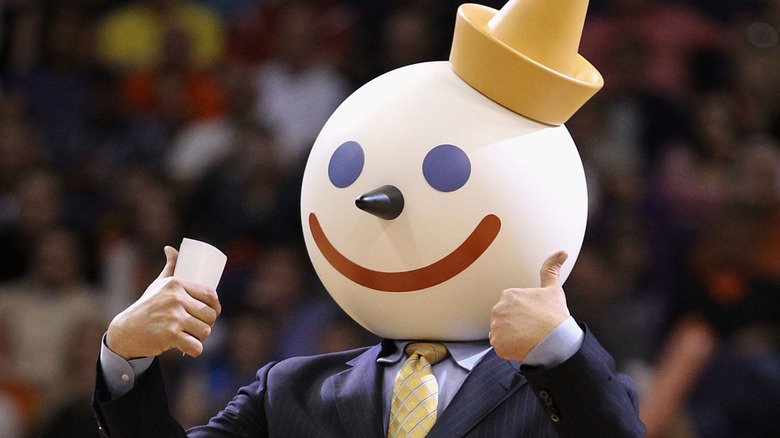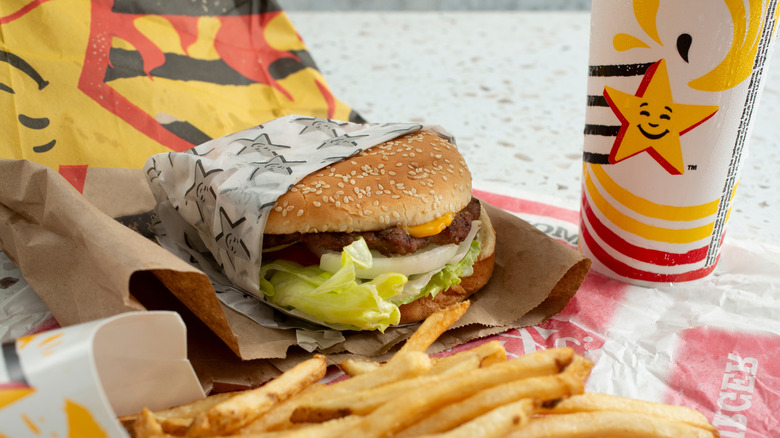Why Carl's Jr.'s Parent Company Once Sued Jack In The Box
If the idea of beef between fast food chains piques your interest, look no further than a 2007 legal dispute between Carl's Jr.'s parent company and Jack in the Box, centered around the issue of butts — yes, really. The drama stemmed from a commercial that Jack in the Box created to promote its then-new sirloin burger. In the commercial, Jack in the Box's toy-headed mascot, Jack Box, is presenting the burger in some kind of corporate meeting, pointing to the location of the sirloin cut on a diagram of a cow. Someone in the meeting then notes that Jack in the Box's competitors offer an Angus burger, and asks the mascot to point out where the cow's "Angus" is, to which he replies "I'd rather not."
The joke is that "Angus" sounds roughly like "anus." In reality, Angus is a breed of cow, not a cut of meat. It's known for having lots of marbling (i.e. streaks of fat), which should generally make it juicier and more flavorful, though both chains still secretly use frozen burgers. Although Carl's Jr. wasn't named in this ad, the company didn't take it well because, at that time, it was serving Angus beef burgers. So, in the name of not taking a joke, the parent company CKE Restaurants Holdings, Inc. sued Jack in the Box over the suggestion that Carl's Jr. made its burgers with cow anus.
How did the lawsuit go down?
Then-CEO of CKE Restaurants, Andy Puzder, went to the media, declaring that the ad was not funny and that it misled consumers about Angus beef. The company asked Jack in the Box to withdraw the ads and make "corrective advertising" to clear up any misconceptions, but the chain refused, arguing that a Carl's Jr. ad suggesting its competitors' milkshakes were low-quality was equally bad. In court, CKE Restaurants used a survey as evidence to claim that 36% of respondents believed that Angus beef came from a cow's rear end. This was not enough to satisfy a judge that Carl's Jr. had been truly wronged, so CKE Restaurants' request for an injunction to stop the ads from airing was refused.
The two restaurants reportedly settled out of court so the case never fully went ahead, though the details of that settlement weren't revealed publicly. Although companies generally can't make false claims in ads, the reason Jack in the Box didn't get slapped down in court probably came down to the fact that the ad was intended to be humorous. Hence, the false "claims" of Jack in the Box would be written off as a joke.

